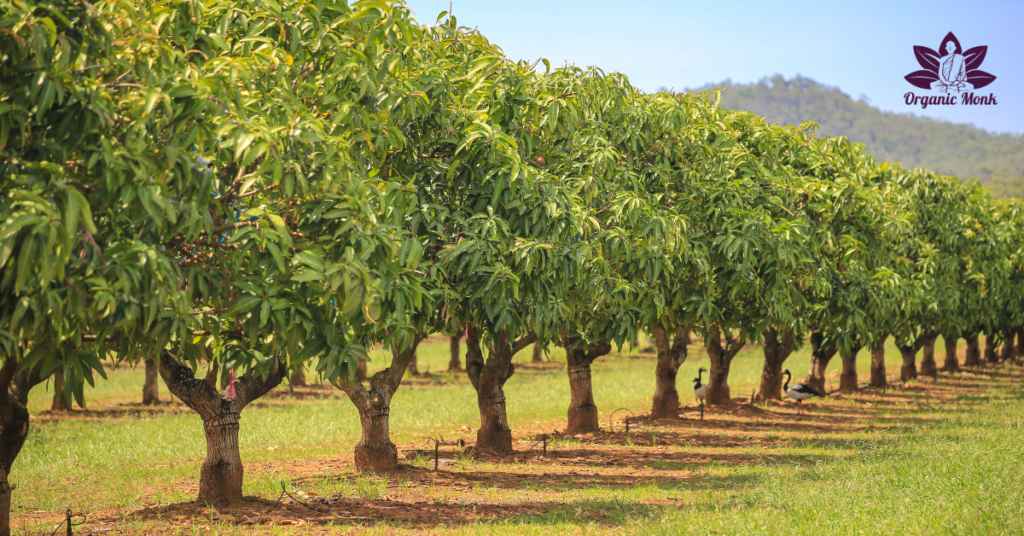Introduction: Nurturing Nature through Organic Farming
Organic farming stands as a beacon of sustainable agriculture, promising a healthier, greener future. In this in-depth exploration, we will dive into the core facets of organic farming, spanning from its very definition to its widespread impact in India, the array of advantages it offers, and the diverse types it encompasses.
By the end of this journey, you’ll have a profound understanding of the organic farming landscape and its significance in modern agriculture.
Defining Organic Farming: Sowing the Seeds of Sustainability
At its essence, organic farming is an agricultural approach that harmonizes with nature’s rhythms. It revolves around cultivating crops and rearing livestock in ways that respect the environment, eschewing synthetic fertilizers, pesticides, and genetically modified organisms (GMOs). Instead, organic farming harnesses natural processes, nurturing the soil, enhancing biodiversity, and fostering a balanced ecosystem. This holistic methodology nurtures both the land and the people it sustains.
Organic Farming in India: A Green Revolution Redefined
India, with its rich agricultural heritage, is witnessing a profound resurgence of organic farming. The nation’s diverse landscapes, cultures, and climates make it a fertile ground for this eco-conscious movement. From the serene Himalayan foothills to the sun-soaked plains of Tamil Nadu, organic farming practices are taking root.
Farmers are reclaiming age-old techniques, adopting organic inputs, and minimizing chemical intervention to yield bountiful, healthful crops. This renaissance is not only transforming farmlands but also redefining the country’s green revolution.
Advantages of Organic Farming: Harvesting a Bounty of Benefits:
Organic farming doesn’t merely embrace nature; it also reaps a harvest of unparalleled advantages. Here are some key benefits that distinguish organic farming:
- Environmental Harmony: Organic farming treads lightly on the Earth, preserving soil quality, conserving water, and reducing pollution. By shunning synthetic chemicals, it safeguards biodiversity and maintains the delicate balance of ecosystems.
- Enhanced Soil Health: Organic practices enhance soil fertility and structure through the use of compost, cover cropping, and crop rotation. Healthy soil not only nurtures better yields but also sequesters carbon, contributing to climate resilience.
- Nutrition and Health: Organic produce is a nutritional powerhouse. By avoiding chemical residues and GMOs, it offers consumers a safer, more nutritious option. The absence of harmful substances resonates with health-conscious individuals seeking wholesome nourishment.
- Water Conservation: With water becoming an increasingly scarce resource, organic farming’s focus on efficient water use is crucial. Methods like mulching and drip irrigation reduce water wastage, benefiting both the farm and the environment.
- Economic Resilience: Though initial costs may be higher, organic farming proves economically viable in the long run. Reduced input costs, premium prices for organic products, and enhanced soil longevity contribute to sustainable profitability.
- Community Empowerment: Organic farming fosters community relationships. Farmers engage with local markets, support indigenous knowledge, and create resilient food systems that bolster local economies.
Diverse Types of Organic Farming: Nurturing Diversity
Organic farming isn’t a monolithic approach; it thrives on diversity. Several types of organic farming coexist, tailored to different climates, resources, and cultural contexts. Some notable types include:
- Biodynamic Farming: Integrating spiritual and cosmic principles, biodynamic farming goes beyond organic practices by focusing on cosmic rhythms and holistic farm management.
- Permaculture: Permaculture embodies sustainable design principles, aiming to create self-sustaining ecosystems that require minimal intervention while maximizing yields.
- Agroecology: This approach intertwines ecology and agriculture, emphasizing the dynamic interaction between crops, livestock, and the environment. It seeks to mimic natural ecosystems in agricultural systems.
- Natural Farming: Inspired by ancient Asian practices, natural farming emphasizes minimal interference and relies on indigenous microorganisms to enhance soil health and plant growth.
Conclusion: Nurturing Tomorrow’s Harvest Today
As the world grapples with environmental challenges, organic farming emerges as a beacon of hope. It exemplifies a harmonious coexistence between humanity and nature, steering agriculture towards a more sustainable path.
With its far-reaching advantages, adaptability, and deep roots in India’s agricultural traditions, organic farming stands as a potent force in shaping a healthier, greener future for all. By embracing its principles, we sow the seeds of prosperity, resilience, and ecological balance for generations to come.
Frequently Asked Questions (FAQs) about Organic Farming
Q1: What is organic farming?
A: Organic farming is an agricultural approach that emphasizes sustainable and eco-friendly practices, avoiding the use of synthetic chemicals such as pesticides, fertilizers, and genetically modified organisms. It focuses on nurturing the soil, conserving water, promoting biodiversity, and producing wholesome, chemical-free food.
Q2: What are the key principles of organic farming?
A: The key principles of organic farming include promoting soil health, avoiding synthetic chemicals, enhancing biodiversity, conserving water, utilizing natural fertilizers, practicing crop rotation, and minimizing environmental impact.
Q3: How does organic farming benefit the environment?
A: Organic farming benefits the environment by reducing soil erosion, conserving water through efficient irrigation methods, promoting biodiversity, and minimizing the use of synthetic pesticides and fertilizers. These practices contribute to healthier ecosystems and a more sustainable planet.
Q4: What are the advantages of organic farming over conventional methods?
A: Organic farming offers several advantages over conventional methods, including better soil health, reduced environmental impact, higher nutritional value in produce, safer food with no chemical residues, improved water conservation, and potential economic resilience for farmers in the long run.
Q5: What is the market demand for organic products?
A: The market demand for organic products has been steadily increasing due to growing consumer awareness about health, environmental concerns, and food safety. Consumers are willing to pay premium prices for organic products that align with their values and offer perceived health benefits.

